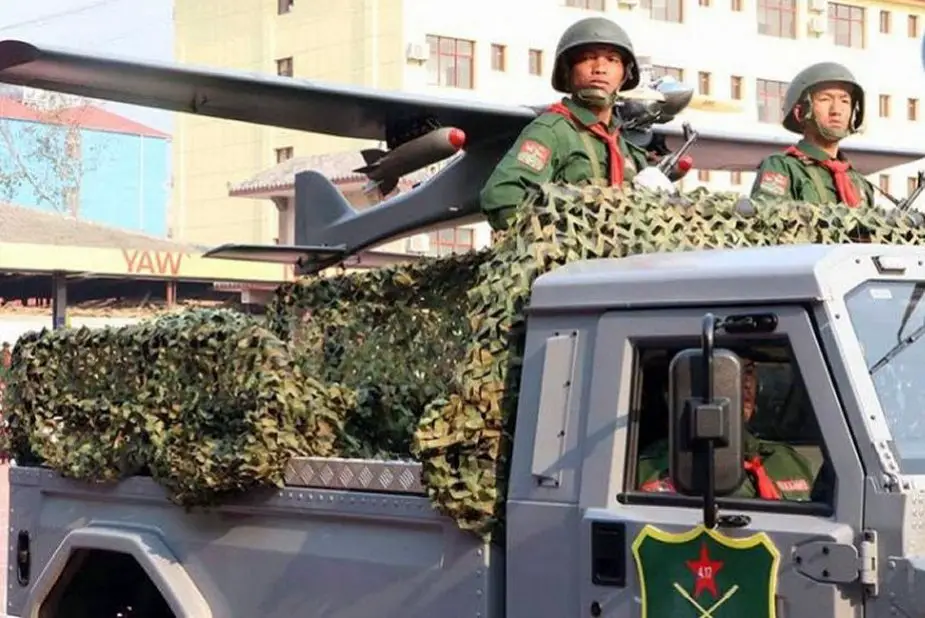Joe Kumbun* reminds in the Irrawaddy, a newspaper from Myanmar (formerly Burma), that he had written, in May 2017, that the United Wa State Army (UWSA) could potentially create unprecedented political risk in the country through the intensified pursuit of its interests—claiming its territory as a state and rejecting the Nationwide Ceasefire Agreement (NCA) through its alliance with other ethnic armed organizations (EAOs) while strengthening its military capability.

The UWSA (United Wa State Army) is abundantly equipped by China with a wide range of sophisticated weapons (Picture source: Network Media Group)
In April 2017, Joe Kumbun details, the UWSA marked its 30th anniversary with a grand military parade. The UWSA’s armed forces displayed sophisticated weapons including heavy artillery, drones and helicopters. The UWSA now has an estimated 30,000 active military personnel, who are specially trained by Chinese military officers. It produces ammunition developed by Chinese technicians. Furthermore, it has modern weaponry such as tanks, 105mm howitzers, sniper rifles, anti-tank weapons and helicopters from China. The UWSA is the only group that owns the helicopters, which are armed with TY-90 air-to-air missiles.
China appears to have protected the Wa territory from any enemies, particularly the Tatmadaw (Myanmar’s army). The Chinese government needs the UWSA in order to play its political game in Myanmar. It has become more publicly visible that the UWSA is obtaining modern military equipment and weaponry from China. In 2013, China sent helicopters equipped with missiles, which could provide a “serious deterrent” to the Tatmadaw. It appears that China started pushing its investment in the UWSA after Myanmar veered toward the West by, for instance, accepting a visit from a U.S. warship in April 2017.
Besides, China’s regional rival, India, made a deal with the Tatmadaw to supply unprecedented torpedoes to Myanmar’s Navy in March 2017. The contract was worth US$37.9 million (57.67 billion kyats) and was a major turning point for the Tatmadaw, which began to look toward other countries after depending on China for many decades. India also provides night-vision devices, Bailey bridges, rocket launchers, mortars, rifles, communications and Inmarsat sets to the Myanmar Army.
China does not want Myanmar to drift out of its orbit, Joe Kumbun comments. If Myanmar were ever to fully abandon China and throw its lot in with the West, or should the Myanmar government fail to fulfill its Belt and Road Initiative (BRI) projects and act against Beijing’s geopolitical and geo-economic interests, China will use its protected UWSA to enforce a “carrot and stick” approach to both the Myanmar government and the Tatmadaw.
The UWSA continues to claim state status for its territory, though it is located in Shan State of Myanmar. It also firmly rejects signing the NCA despite State Counselor Daw Aung San Suu Kyi having urged them to sign it. The UWSA controls the territories referred to by the government as “Special Region No. 2 in Shan State,” while the UWSA itself refers to them as Wa State. The 2008 Constitution officially classifies this territory as the Wa Self-Administered Division, but the UWSA referred to its territory as the Wa State Government Special Administrative Region on January 1, 2009.
Undeniably, the “Wa” enclave now has de facto independence from Myanmar, operating outside the sphere of national sovereignty, Joe Kumbun concludes.
* Joe Kumbun is the pseudonym of an analyst based in Kachin State.














